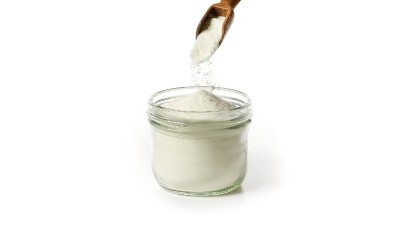Antioxidant action: Vitamins role in skin immunity underlined, but more research needed on gut-skin axis

The use of antioxidants helps to sustain healthy skin by tackling the triggered immune response and free radicals-mediated damage.
“Antioxidants alter the signal transductions associated with skin damage.
“Because of the natural antioxidant property of nutraceuticals, many individuals are augmenting their meals with multivitamins or isolated vitamin supplements, in addition to using topical skin care treatments on their faces,” researchers from Karnataka, India reported.
Vitamins A, B3, C, D and E have been studied to exhibit anti-microbial effects through various pathways, and improve the skin immunity.
Various pathways at work
Vitamin A, known as retinoids, helps improve the skin immunity through three major pathways, namely the increased expression of Toll-like receptors-2 and 3, regulation of mast cells, and expression of anti-microbial proteins.
It is known for its properties to treat photo-damaged skin and prevent various inflammatory disorders.
“When vitamin A is consumed orally, the liver is responsible for converting dietary retinyl esters (RE) and beta-carotene to retinol.
“It is further esterified for storage or circulation within the body. Retinol binds to the retinol-binding protein and enters the capillaries in the dermis for distribution within the skin.
“The cellular uptake of retinol is mediated via endocytosis or specific receptors,” the paper added.
Vitamin B3, known as niacinamide, is delivered through the epidermis that protects the skin from ultraviolet radiation, pollution, and microorganisms.
“Vitamin B3 permeates the stratum corneum, which serves as the outermost layer of the epidermis, subsequently traversing to the viable epidermis.
“Niacinamide participates in multiple metabolic processes and pathways (e. g. NAD synthesis) in the skin. Once in the viable epidermis, vitamin B3 is converted to its active form, NAD+, which plays a critical role in energy metabolism and DNA repair.”
Vitamin C plays a pivotal role in improving skin pathologies, including acne, psoriasis, progressive purpura, or allergic contact dermatitis through its anti-inflammatory effects.
Vitamin C is reported to exert its therapeutic effects by three mechanisms, namely collagen stabilization, ceramide regulation, and wound healing effect.
“When consumed orally, vitamin C is transported from the bloodstream to the layers of the skin through specific transporter proteins. Keratinocytes have a larger capacity for transporting vitamin C in comparison to the epidermis which has limited vascularization.”
Due to the limited absorption of Vitamin C through the skin, the researchers stated that oral administration of Vitamin C is more effective than the latter.
Vitamin D helps to regulate skin pigmentation, and enhance skin’s barrier function.
Although found naturally in sun exposure, ultraviolet radiation has both advantageous and detrimental effects on human health. That said, researchers recommended the option of incorporating low-dose Vitamin D dietary supplementation.
“The overlapping action spectra of both harmful and beneficial effects prompt inquiries into the rationale behind the long-standing evolutionary process of gene-environment interactions.
“Nonetheless, the synthesis of pre-vitamin D3 does not necessitate prolonged exposure to UVB radiation, and excessive UVB irradiation can lead to sunburn, consequently, compelling individuals to limit or avoid sun exposure.”
Vitamin E improves the immune function of the skin through two mechanisms, namely its antioxidant properties that protect cells from oxidative stress and stopping the production of prostaglandins responsible for atopic dermatitis.
For oral administration, researchers stated that it takes a minimum of seven days to notice changes in Vitamin E content of sebum. For topical administration, it is delivered to the stratum corneum via sebum, but its antioxidant effectiveness may be limited by environmental factors and age.
Limited research on vitamins and gut-skin axis
As the gut microbiome is a source for different vitamins, gut dysbiosis might alter the levels of vitamins that result to skin dysbiosis.
The review also found some common characteristics shared by both gut and skin tissues, and the gut-skin axis was also supported by some clinical evidence.
“Administration of different probiotics like Bifdobacterium infantis, Lactobacillus pentosus was found to have beneficial effects in psoriatic patients. The same was also reported in the imiquimod-induced psoriasis model of mice.
“Similarly, gut dysbiosis manifested by the decrease in microbiome diversity was observed in acne vulgaris patients, and probiotics consumption prevented the occurrence of AD in different patient population. Apart from these, skin pathological conditions like rosacea, dandruff, and seborrheic dermatitis were also associated with gut dysbiosis, which was then ameliorated by administering the administration of probiotics.”
However, the researchers cautioned for more research to be conducted to establish a correlation between the gut and skin.
“There is a dearth of evidence on the role of vitamins modulating the gut–skin axis. Therefore, vitamin’s impact on the gut–skin axis needs to be studied for establishing their plausible connect in skin disorders.”
Study methodology
Researchers conducted an analysis on surveys, reviews, and clinical trial data on the roles played by vitamins A, B3, C, D and E in skin immunity and various dermatological conditions.
The secondary outcome was finding out how skin immunity can be influenced by disruptions in the skin microbiome, by studying the efficacy of vitamins in improving skin inflammation caused by microbiome in conditions such as atopic dermatitis, psoriasis and chronic urticaria among others.
Scopus databases and PubMed was used to source the articles around some key words, such as “skin immunity,” “skin microbiota,” and “skin immunity and vitamins A, B3, C, D and E.”
Source: Pharmacological Reports
“Modulatory role of vitamins A, B3, C, D, and E on skin health, immunity, microbiome, and diseases”
Authors: Joshi, M., et al.


















